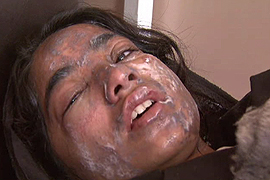by Rachel Reid
Kabul: Beware Taliban revisionism. You're going to hear much more of it in the coming months as policy makers from Kabul to Washington seeking to reintegrate Taliban fighters try to explain why the enemy isn't so bad after all. Bombs that slaughter civilians, acid attacks that disfigure school girls, assassinations of women in public life-all of this will be swept under the carpet.
In its place, a new narrative will be trotted out, one in which most of the fighters are "ten-dollar Talibs"-just in it for the money-or modern-day Robin Hoods fighting the injustices of their local government. While money or politics may indeed be the motivation for many low-level fighters, that doesn't change the fact that too many Afghan women are experiencing the same kind of oppression today they faced under Taliban rule.

In one attack in Kandahar in 2008, around 15 girls and teachers were sprayed with acid by men on motorbikes. (Photo: Al Jazeera)
"We as Taliban warn you to stop working . . . otherwise we will take your life away. We will kill you in such a harsh way that no woman has so far been killed in that manner. This would become a good lesson for women like you who are working." When Fatima K. received this letter she was terrified and left her job. Such messages-called night letters, since they are delivered after dark-are a common means of intimidation used by the Taliban.
When 22-year-old Hossai received similar threats by phone from a man saying he was with the Taliban in Kandahar, she refused to be bullied. She loved her job at the American development company DAI, and her salary supported her family. But one day in April Hossai was shot by an unknown gunman as she left her office. She died from her wounds.
A few days later another woman in Kandahar received a night letter. It demanded that she give up her job, or else she "will be considered an enemy of Islam and will be killed. In the same way that yesterday we have killed Hossai, whose name was on our list." This woman has since stayed home.
These stories are seldom heard, but it's not because they are rare. The victims are often too terrified to report such attacks to the authorities, or have little hope that anything will be done if they do. They can expect little or no protection from their government, which seems more willing to provide patronage to senior insurgents who switch sides than assist women at grave risk. When high-profile women are assassinated, their cases are not given the priority they deserve and their killers are rarely brought to justice. While men who run afoul of the Taliban are also attacked-particularly in Kandahar, where the murder rate in recent months has reached unprecedented heights-the situation for women is worse.
The reassurance offered by the Afghan and U.S. governments is that those Taliban who lay down arms through reintegration or reconciliation programs must accept the constitution, which enshrines equal rights for men and women. But given how often President Hamid Karzai has himself ignored the constitutional protections afforded to Afghan women-as when he approved the highly restrictive Shia family law in 2009-it is not clear why Taliban who return to the political mainstream would have any motivation to respect the rights of women.
Many women activists would prefer to see explicit guarantees put at the heart of negotiations with the Taliban. There are some rights that should be nonnegotiable: the right to work, to participate in political life, and to send their daughters to school. But when I spoke to Mullah Abdul Salam Zaeef, a founding member of the Taliban and its former ambassador to Pakistan, he did not inspire confidence that this would be possible.
Zaeef, who now resides in Kabul after a stint in Guantanamo, explained in our May meeting why he believes the freedoms won by Afghan women in recent years are "corrupting" them. "If you put a young adult man and woman in one room for some time, of course there will be some interactions, which is against Islam. This is like a virus here and it will spread," he said to me.
I emerged from my conversation with Zaeef uncorrupted. As for my questions about what gender segregation might mean for mixed work environments, like the Afghan parliament where women make up 25% of the members, I got no straight answer.
The Afghan government should have women's rights at the center of the reintegration programs. But the experience of the past nine years has been one of hasty deals and impunity for serious crimes. And with the need for an exit strategy weighing heavily on the minds of U.S. policy makers, there's a strong chance that justice and principle will once again be sacrificed.
American officials are often tempted to deny their own influence by claiming that this will be an Afghan process. But since the U.S. will pay for most of it, this is not a credible position. Worse still, it flies in the face of repeated U.S. commitments to help protect and promote the rights of Afghan women. The U.S. should make clear that if reintegration and reconciliation results in less freedom for Afghan women and girls, American taxpayers will not foot the bill.
Ms. Reid is the Afghanistan researcher for Human Rights Watch.



